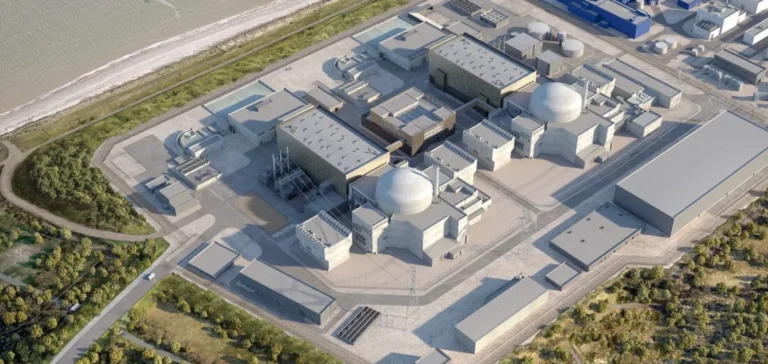The Sizewell C nuclear power plant project, located on the east coast of England, has reached a significant milestone with the signing of two fuel supply agreements. The contracts, concluded with UK-based Urenco and French group Framatome, are set to cover the plant’s initial nuclear fuel needs during its first years of operation.
Six-year uranium enrichment agreement
Urenco has been selected to provide uranium enrichment services for a period of six years. The operations will take place at Urenco’s enrichment facility in Capenhurst, near Chester in north-west England. This contract aims to establish a secure supply chain from the beginning of operations for the two European Pressurised Reactor (EPR) units, which will have a combined capacity of up to 3.2 GW.
Urenco Chief Executive Officer Boris Schucht stated that this commitment would allow the company to strengthen its economic contribution to the UK, particularly through the Capenhurst site, one of four operated worldwide. He also noted the expected positive impact on employment and skills development within the nuclear sector.
Fuel fabrication by Framatome
At the same time, Sizewell C has entered into a long-term agreement with Framatome for the fabrication of nuclear fuel assemblies. The initial production will be carried out at the company’s factory in Romans, France, with a gradual shift to a new facility planned in the UK. This approach aligns with a strategy to enhance the country’s energy sovereignty by reducing reliance on fuel imports.
Framatome has already signed multiple large-scale contracts for the delivery of key components for the project. Lionel Gaiffe, Senior Executive Vice President of the Fuel Business Unit at Framatome, emphasised the importance of this cooperation in ensuring a diversified and resilient supply chain.
70% domestic value target in construction
Sizewell C expects that the electricity generated by its two reactors will supply the equivalent of six million homes for at least sixty years. The project, which received a final investment decision in July, aims to achieve 70% of its construction value from UK-based activity, with a long-term goal of reaching 90% over the plant’s lifetime.
Julia Pyke and Nigel Cann, Joint Managing Directors of Sizewell C, stated that the contracts signed with Urenco and Framatome not only enhance national energy security but also support UK employment and industrial capability. They noted that Sizewell C will follow the design of Hinkley Point C, located in Somerset, in an effort to reduce construction time and costs.






















